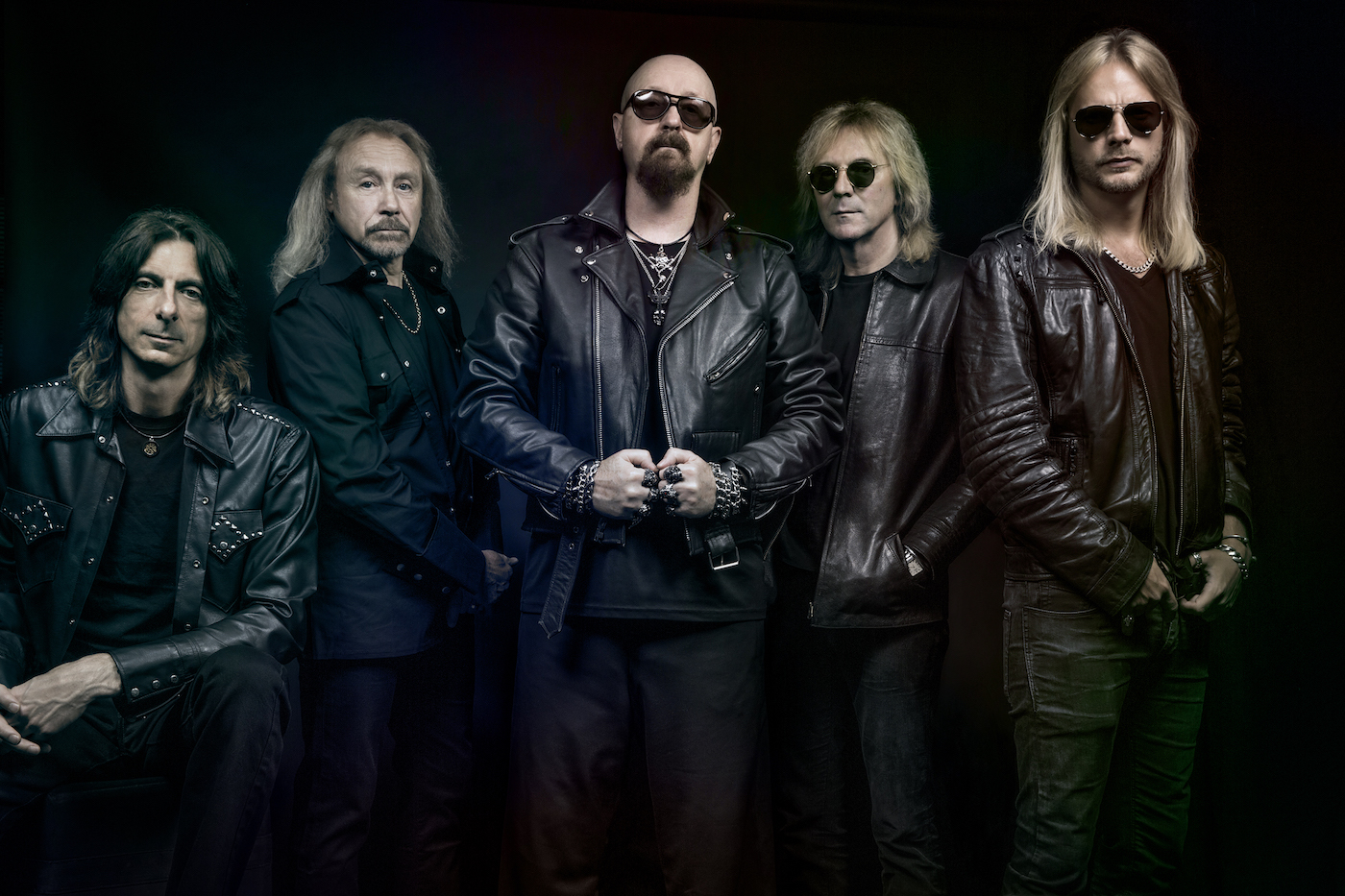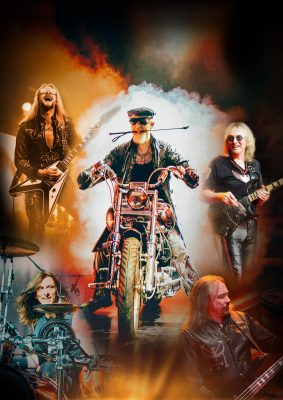
Judas Rising: An Interview With Judas Priest’s Richie Faulkner
Music Interviews
Judas Priest’s current tour coincides rather nicely with live music moving back into the realm of possibility, and guitarist Richie Faulkner takes pains to emphasize that Priest’s return to the stage has been just as invigorating for the band as it is for the fans. “There seems to be a really positive … almost like an emotional release,” he says. “Definitely for us as well, as the band, after almost two years of not only not playing shows, but not really knowing when that’ll happen again—it’s definitely like a release.”
Indeed, the musical energy and explosive stage presence of Judas Priest feels uniquely suited to the moment—an appropriate outlet for months of pent-up head-banging and horns-throwing. “A metal show and live music is such a cathartic thing anyway—you can leave your troubles at the door and just be involved in the energy of the room,” says Faulkner, who took over for longtime Priest axeman K.K. Downing in 2011. “It’s a good thing, I think,” he says. “It’s a positive thing, and you can definitely see that on the faces of the crowd and the other members. We’re just having a blast out there.”
Returning to live performance after a two-year absence would be cause enough for revelry, but Judas Priest are also in the midst of celebrating a full half-century of heavy metal trailblazing, a major milestone for an undeniable cornerstone of the genre. Faulkner admits that condensing 50 years and 18 studio albums down to a single night of music is no easy task. “It’s a good challenge to have; those guys just have tons and tons of great material, and how do you put an hour and forty set together without leaving anyone’s favorite out?” he asks. “The answer is that you can’t, really—you just have to play what you think is best.”

“You can leave your troubles at the door and just be involved in the energy of the room.”
The end result, a mix of popular favorites and deeper cuts, new material and old, succinctly outlines an enviable body of work and gets about as close as possible to a set that can satisfy Priest fans of every kind—including Faulkner himself, who singles out “One Shot at Glory” as particularly exciting to finally bring to the stage for the first time since its 1990 studio release. “The band has never played [it] live before … ‘One Shot at Glory’ was one of those songs that you could just imagine live. And they never played it live, and I always wondered why they didn’t,” he says. “So now we’ve been playing that one and opening the show with it. I think that sends a message … It’s a statement that we’re doing things the band hasn’t done before, as a celebration. It’s a great opening track, and the crowds seem to love it, too.”
The prospect of keeping the band fresh and vital after so long may seem daunting, but Faulkner is largely unfazed by the prospect; understandably so, after the band’s 2018 LP Firepower saw a particularly enthusiastic critical reception and strong sales across the globe. “I think the character of the band is so strong through the years that it comes through if you just do what comes naturally to you [and] if you write the music that comes from your heart,” he says. “It’s just figuring out how to make better than the last one, and how to give the fans a different experience. But that character of Judas Priest—the guys in Judas Priest—their characters are so strong musically that it always sounds like Judas Priest.”
“It’s a statement that we’re doing things the band hasn’t done before.”
Though he’s quick to label himself a “traditionalist” whose tastes meshed readily with his older bandmates, Faulkner still brought some unique perspectives to Priest’s songwriting process in recent years. “I’ve got a lot of influence in the early-to-mid ‘80s and the pop music of that time: R&B, Roxy Music, Bryan Adams,” he says—“stuff that was in the house when I was growing up.” Crucially, he expresses a willingness to look outside the world of metal for songwriting inspiration. “If you’ve got an idea, and it might not even necessarily be what you’d consider ‘heavy metal’ or whatever … If it’s a good-sounding idea, you put it on the table and we’ll work on it,” he says. “A good song is a good song … You never know, you might think, ‘oh, that’s not a very good idea’ or ‘that’s not appropriate for this record,’ but if you put it on the table with Glenn and Rob, sometimes it is, and it can surprise you.”
With Firepower proving they have some fire left in their bellies and the 50 Heavy Metal Years tour set to re-establish their status as icons in their field, Judas Priest seem poised to enter the band’s middle age on no one’s terms but their own. “Metal has always been evolving, and it evolves, obviously, by not staying the same,” Faulkner says. “So any new experiences you have, you can fit in there, and as long as they sound and feel right, you can go with it. It’s a beautiful thing.”
Catch Judas Priest at the Maverick Center on March 7.